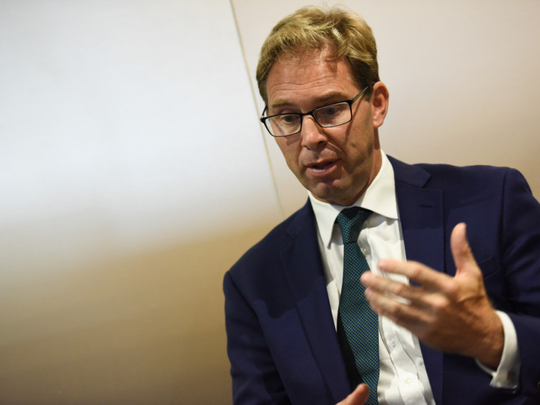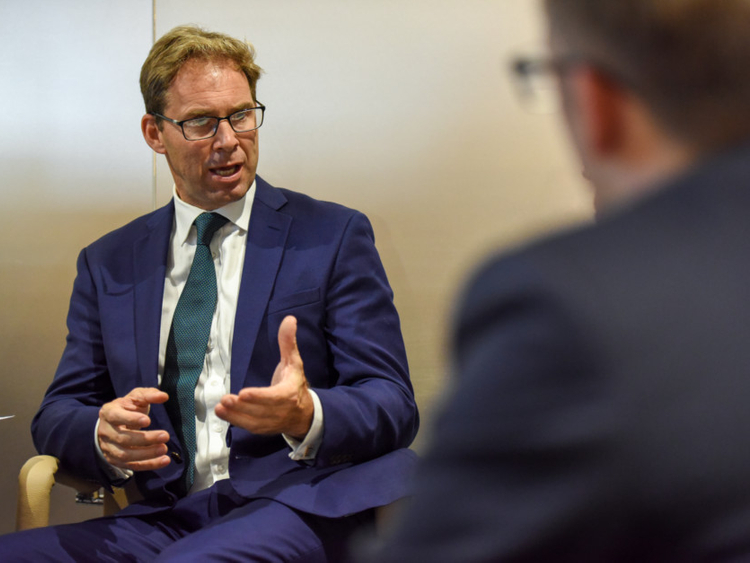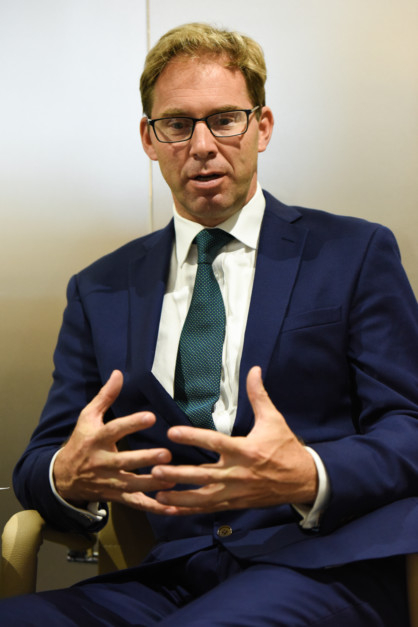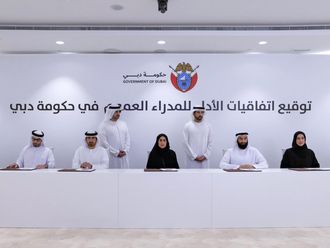
Dubai:
Issues related to extremism in the Middle East and trade relations will hold a prominent place in bilateral ties between the United Kingdom and the UAE, says Tobias Ellwood, Minister for Middle East and North Africa for the Foreign & Commonwealth Office.
During a visit to the UAE for the 14th Task Force meeting between the two countries on Wednesday in Abu Dhabi, Ellwood and UAE State Minister for Foreign Affairs Anwar Gargash were expected to talk about strategy to boost that number significantly in years to come.
The UAE and UK have held task-force meetings every six months since 2010 to keep both countries working from the same page on issues ranging from security and economy to health and technology.
In an interview with Gulf News on Tuesday evening, Ellwood said the high-level meeting was set to examine, among other agenda talking points, issues to boost the economic returns being enjoyed by both sides.
“My work as Minister of Middle East focuses on both the challenges such as extremism and also the opportunities such as the prosperity agenda,” he said.
“Bilateral trade between the two countries is about $12.5 billion (Dh45.91 billion) as it currently stands. Very impressive figure. But, the British prime minister and the UAE have agreed to double that, in fact to get it up to $25 billion by 2020. Now that’s quite an ambitious target, but everyone agrees this is manageable,” Ellwood said.
“Those numbers themselves simply reflect the huge-scale opportunities and the desire and the ambition of two countries that want to work more closely together. To meet that target, we then have to move away from the traditional areas of cooperation from hydrocarbons to defence engagement and that’s where we are making huge progress from the digital economy to health, education and other areas. It’s a glass half full.”
With one million visits by UK tourists to the UAE a year, up to 120,000 UK expats living in the UAE combined with countless UAE investments in the UK, there is a lot at stake in the partnership, he said.
Shared prosperity, however, is tempered by sinister extremist groups such as the Daesh which are overshadowing the entire Middle Region’s ability to someday reach its full social, political and economic potential.
Terrorism and sectarian differences in the region are issues that are being addressed bilaterally between the UK and the UAE, Ellwood said.
“There are these proxy influences that have been less than helpful, that have been hugely detrimental to peace and provocative as well,” he said.
“The biggest challenge — we’re working with the United States and the Emiratis — is countering the Daesh message, so this is strategic communication. How can we take the thwarted message of Daesh, that has hijacked the Quran for its own benefit and show people that their ideology is false, this isn’t what Islam is about, it’s a peaceful religion? What they are about is something that nobody should be following,” Ellwood said.
To help ease the suffering of refugees fleeing conflict-torn corners of the region such as in Syria and Iraq, the UK is helping, Ellwood said, but is also mindful of keeping out migrants who do not have proper refugee claims.
“There is a massive increase in those seeking refuge in Europe,” Ellwood said, adding that the UK has agreed to take in 5,000 Syrian refugees forced to flee bloodshed.














